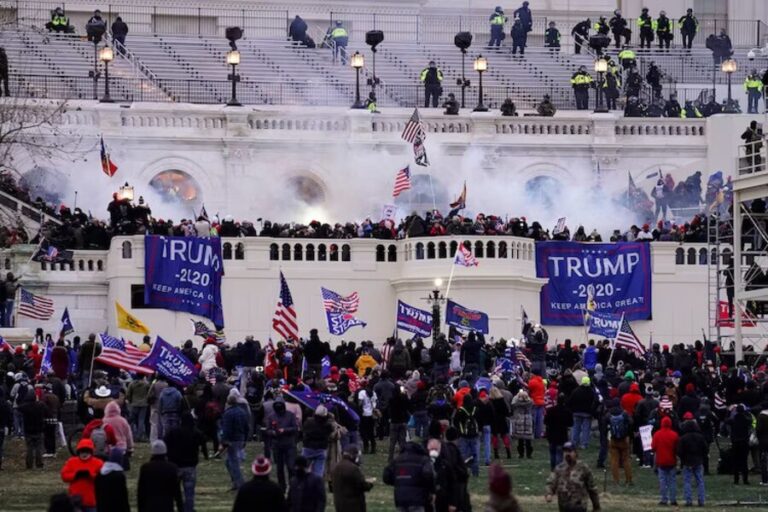Federal prosecutors have filed a formal objection to a request from Cindy Young, a convicted participant in the January 6 Capitol attack, seeking permission to attend President-elect Donald Trump’s upcoming inauguration in January. The U.S. Department of Justice urged the federal judge overseeing Young’s case to deny her request, citing concerns about public safety and the potential for further victimization of law enforcement officers.
Young, a New Hampshire resident, was convicted earlier this year in the U.S. District Court for the District of Columbia on four misdemeanor charges related to her involvement in the Capitol riot. She was sentenced to four months in jail, followed by probation, which included strict conditions barring her from entering Washington, D.C., without prior approval from her probation officer. Despite these restrictions, Young filed a motion last week asking for an exception to attend the January 20, 2025, inauguration of Donald Trump, arguing that she posed no threat to public safety or risk of flight.
In their Wednesday filing, prosecutors disputed Young’s claims, highlighting her post-conviction behavior as a cause for concern. The DOJ pointed to repeated instances where Young had called for “retribution” against jurors, judges, and law enforcement personnel involved in the prosecution of January 6 cases. “The risk Young presents to those in D.C. did not end with her exit from the [Capitol] Building,” the filing stated, adding that her presence at the event could endanger the safety of others and re-traumatize officers tasked with securing the inauguration.
Prosecutors further noted that Young had publicly mocked officers who were attacked during the Capitol riot. Many of these officers are expected to play critical roles in safeguarding the Capitol and its surroundings during the inauguration. “Her presence at an event staffed by law enforcement would not only present a danger but would cause further victimization for the officers who Young has publicly mocked,” they argued.
Young’s case is not unique. She is one of several January 6 defendants seeking permission to attend Trump’s inauguration. Among them is Russell Taylor, a California man who pleaded guilty to a felony for his role in the Capitol riot. Taylor, who was invited to the event by retired Republican Representative Chris Stewart, has also requested judicial approval to travel to Washington, D.C. According to his sentencing memo, Taylor had “repeatedly called for violence and a show of force” to overturn the 2020 election. On January 6, he allegedly led a mob that overran a police line near the inaugural stage while wearing a bulletproof chest plate and carrying bear spray. The court has not yet ruled on Taylor’s request.
Another January 6 defendant, Eric Peterson, has also submitted a similar request to attend the inauguration, although details of his case remain less prominent. The surge in requests from individuals convicted or charged for their roles in the Capitol attack has prompted heightened scrutiny from federal prosecutors, who argue that allowing these individuals to attend such a high-profile event could jeopardize security and undermine the judicial process.
The broader context of these cases underscores the continued ripple effects of the January 6 insurrection. Prosecutors and law enforcement agencies remain vigilant in addressing threats stemming from the attack while navigating the legal complexities of individual requests. The DOJ’s filings reflect its commitment to maintaining public safety and holding participants accountable, even as some defendants seek to re-enter political spaces tied to the events that led to their convictions.
In Young’s case, the court’s decision will likely hinge on balancing her claims of rehabilitation and personal interest against the government’s concerns about public safety and the precedent such an exception could set. For now, the legal battle continues, with federal prosecutors maintaining that the risks associated with granting these requests far outweigh any personal motivations defendants might have for attending the inauguration.
